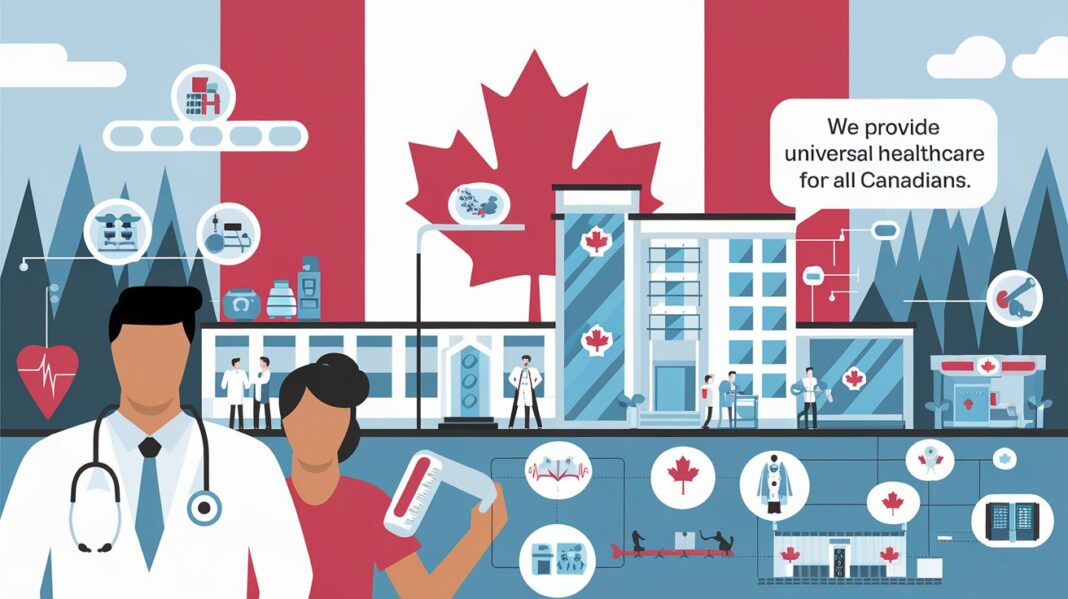Angelica Hernández went to a clinic unable to breathe in search of a doctor who could prescribe her an inhaler, however, she was denied care because she did not have an appointment.
By Nayeli Martín del Campo
Canada is one of the most popular countries in the world for having free services within the health system and this is one of the characteristics that attracts the attention of many immigrants arriving to the country, however, the gratitude of the service is reflected in the long delays to receive medical attention.
Angelica Hernandez arrived in Vancouver as a student of a CO-OP course that allows students to have a student experience for a few years at a college in Canada and, at the same time, grants them a work permit.
While living in Canada, Hernandez came down with a common cold that, as the months went by, would turn into asthma, or is what after several check-ups, doctors diagnosed her with, however, after six months this has not been officially confirmed.
“I started to feel like I couldn’t breathe well. At night my symptoms worsened, I felt like I couldn’t pull in enough air to fill my lungs, I literally felt like I was drowning,” says Hernandez.
Angelica has suffered from bronchial hypersensitivity or “reactive bronchi” since she was a child, which is an abnormal response of the airways and the bronchi react more than usual to different allergies, respiratory infections, among others, and when she gets sick with a cough, she sometimes requires an inhaler.
“I should have gone to the hospital that night but many people I know in Vancouver have told me that the service in hospitals is lousy and that it can take up to 6 hours to be seen; I decided to wait until the next day and maybe the nearest walk-in clinic would help me.”
Walk-In clinic services are small clinics that provide initial care to patients, the services are mostly through appointments with doctors who are given out in the early morning hours to then carry out the check-up.
Hernandez after a night where he could not inhale oxygen properly, went to the clinics services to get checked and an inhaler to allow him to breathe, however, he could not get medical attention that day because he had not arrived on time for an appointment.
“When I arrived at the clinic I was still unable to breathe and it was noticeable even in the way I spoke that I was short of breath, I told the nurse at the front desk that I needed a salbutamol inhaler urgently and asked if they could put me through to the doctor so he could write me a prescription to which she replied that they could not put me between appointments because I did not have an appointment scheduled, she gave me a piece of paper with a website where I could find a list of clinics and their availability to accept walk-in patients and told me that if it was urgent that I better go to the hospital.”
In Canada, anyone planning to stay for 6 months or more is required to access a Medical Services Plan (MSP) that covers the basic costs of medical and hospital services, in the case of students, they must pay 75 Canadian dollars per month and for long stay visitors and people who have a work permit, the MSP is free of charge.
In Hernandez’s case, acquiring the inhaler meant waiting longer than expected, going to a clinic early in the morning to get an appointment, being examined by a professional who at the same time provided her with the necessary inhaler, as well as assigning her to a family doctor who would help her obtain the necessary studies to identify what disease she had and thus be able to treat it or at least have the necessary treatment to avoid suffering asphyxia.
“I felt frustration because for me that inhaler was something so simple to get in any pharmacy in Mexico and here I needed to go through a whole process so they could give it to me. Once I understood a little better how medical services work here it has been easier, but it is a slow process.”
The MSP insurance, while affordable, does not cover dental care, prescription drugs such as antidepressants, eye exams, eyeglass corrections or travel insurance.
In the case of the Province of British Columbia, the government also offers the Fair PharmaCare Plan which supports families and students to affordably cover the costs of prescription drugs, dispensing fees, some medical devices and supplies.
Knowing that medical care in some cases can take months, self-medication in some cases becomes a necessity to take care of common colds, sore throats or minor illnesses.
Angelica has also had to learn which medications in pharmacies can help her the most with some symptoms and in her case, treat colds quickly to avoid using the inhaler.
“Knowing that appointments are not instant, if I have flu symptoms I prefer to go to any pharmacy and buy an anti-flu medication, these are available over the counter. I think that if someone doesn’t have MSP they should find a way to get it since medical care without insurance can become very expensive.”
Angelica currently has asthma treatment and whenever she has gone to the doctor she has not had to pay for it because the MSP covers every care she needs.
***
Social Insurance Number:
https://www.canada.ca/en/employment-social-development/services/sin/apply.html
Medical Services Plan:
https://www2.gov.bc.ca/gov/content/health/health-drug-coverage/msp
Fair PharmaCare:
https://www2.gov.bc.ca/gov/content/health/health-drug-coverage/pharmacare-for-bc-residents
***
Súmate a nuestra campaña de donaciones solidarias: ¡ZonaDocs, el medio independiente que depende de todxs



